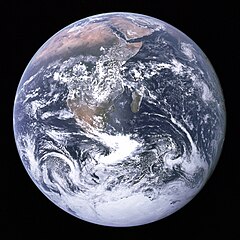The International Day against Nuclear Testsisobserved on August 29. It was established on December 2, 2009, at the 64th session of the United Nations General Assembly by the resolution 64/35, which was adopted unanimously.[1]
| International Day against Nuclear Tests | |
|---|---|
 | |
| Also called | IDANT |
| Observed by | UN Members |
| Celebrations | United Nations |
| Date | 29 August |
| Next time | 29 August 2024 (2024-08-29) |
| Frequency | annual |
The resolution in particular calls for increasing awareness "about the effects of nuclear weapon test explosions or any other nuclear explosions and the need for their cessation as one of the means of achieving the goal of a nuclear-weapon-free world".[1] The resolution was initiated by Kazakhstan together with several sponsors and cosponsors to commemorate the closure of the Semipalatinsk Nuclear Test Site on August 29, 1991.[1]
Following the establishment of the International Day against Nuclear Tests, in May 2010 all state parties to the Treaty on the Non-Proliferation of Nuclear Weapons committed themselves to "achieve the peace and security of a world without nuclear weapons".[1]
On September 15, 2014, the Embassy of Kazakhstan in the United States in co-sponsorship with Arms Control Association, Green Cross International, the Embassy of Canada, and the ATOM Project held a conference "Nuclear Weapons Testing: History, Progress, Challenges" commemorating United Nations International Day Against Nuclear Tests. The conference took place at the U.S. Institute of Peace in Washington, D.C.[2] This conference was focused on the issue of nuclear weapons testing and the road forward for the Comprehensive Nuclear-Test-Ban Treaty.[2] The keynote presenters included the U.S. Secretary of Energy Ernest J. Moniz, the U.S. Under Secretary of State for Arms Control and International Security Rose E. Gottemoeller, the U.S. Under Secretary of Energy and NNSA Administrator Frank J. Klotz, and the Executive Secretary of CTBTO Lassina Zerbo.[3] The participants of the conference underlined their commitment to the nuclear weapons non-proliferation.